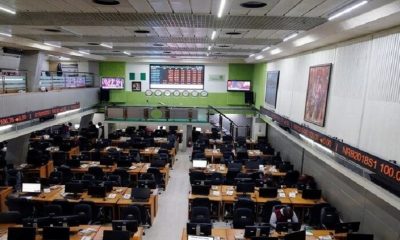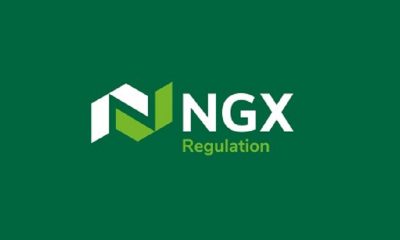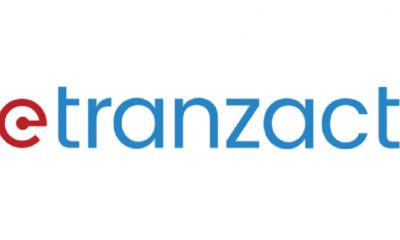Economy
2016 Recap and 2017 Market Outlook


By Ambrose Omordion
History has been made in the Nigeria capital market. For the third consecutive year, the benchmark All-Share Index of the Nigerian Stock Exchange (NSE) again contracted.
The 2016 contraction, unlike those of 2014 and 2015 was a single digit decline, fueling hope of a recovery soon.
The single digit contraction however resulted from the year-end seasonal trading volatility witnessed in the last few trading week of 2016, triggered by the low stock valuation and the agreement by members of the Organisation of Petroleum Exporting Countries (OPEC) to cut supply of crude oil to the international market as part of measures aimed at stabilizing oil prices.
The agreement was enhanced by the support of Russia, a major producer and non-member of the cartel, which also announced a cut in its production output. Market reaction to the news of the agreement which becomes effective this year, resulted in the gains by players in the NSE’s oil and gas sector as tracked via the Oil & Gas index.
The year 2016 was however rough for market players and analysts as unexpected events, negative economic data and company numbers continued to deepen to reflect the prevailing economic recession.
It is nonetheless obvious that during the year 2016, lack of concrete economic policies to give direction and the non-coordination of economic managers was also a major factor that affected domestic and international investor confidence in the market and the economy at large.
There was the impact of the delayed budget, coupled with the tight monetary policy regime adopted by the Central Bank of Nigeria (CBN).
The non-complementarity of fiscal and monetary policies was also evident, as both rather moved in opposite directions to the detriment of the masses, with the economy contracting in the first three quarters of the year as revealed by GDP numbers released by the National Bureau of Statistics (NBS).
The NBS on Saturday noted that if Nigeria must hold the unemployment rate at the current level of 13.9%, its economy must generate over 2.6 million annually, lamenting that the magnitude of employment in the country has not been sufficient to meet the ever-growing labour market, hence the continuous rise in the level of unemployment in the country.
The regulators of the market: SEC and NSE, recorded improvements despite the mixed general performance of the market for the year to close lower.
The development and growth of the nation capital market was highly driven by technology that continues to transform the face of the market and enhance transparency thereby restoring both domestic and international investors’ confidence in market activity.
Technology has also continued to make trading and investing simple with the online trading platforms that allows investors place trade from the comfort of their homes and offices, coupled with access to real market information that quicken investment decisions as more market operators creating online portals for their clients to trade directly on their own.
The composite index NSE ASI for the year shed 1765.68 points to close at 26,874.62 from an opening figure of 28,642.25 representing 6.16% decline after it had hit a high of 31,127.82 and low of 23,311.95 within the year under consideration.
The year started with a negative outlook in January which was characterized by the post-election fear of the leadership and economic management style of the new government, with share prices (especially of most blue-chips), volume and value recording new lows stocks, virtually all the indices crashed for that period.
They reversed up in February with oscillating movement that lasted five months, touching a high of 31,127.82points in June before pulling back to experience mixed performance of up and down movements, extending the periods of market bearishness that lasted for another five months (most notably from June to November) and these conditions made the latter part of the year quite interesting for many traders, before the end of the year rally reversed the bearish trend to close the month of December in green.
The Santa Claus rally effect was visible on the exchange.
The other leg of the market which is the primary market had low activity, compared with the previous years as all proposed Right Issues, public offers or initial public offers were postponed due to uncertainties and low confidence of investors in the market, despite all the efforts of market regulator to admit more companies to the exchange. One company was however admitted for listing at the alterative market sector during the year.
As the market repositions to play its role in the nation’s economic development, government must introduce policies that will attract small and medium companies to sources medium and long fund from the stock market.
The market’s sectoral indices showed that two out of the 11 indices closed the year positive. They are: which are NSE Premium index and NSE Banking Index with 6.98% and 2.17% respectively, while others were in red apparels.
The loss suffered by the market in 2016 was attributed to many factors including unstable global financial market resulting from low price of crude oil at the beginning of the year, sell down in china’s equity market, unexpected vote by Britons to leave the Eurozone and the unexpected victory of U.S president-elect Donald Trump.
Also on the local scene, there were the effects of high interest rate, hyperinflation, high unemployment and low national output that led to the ongoing recession that affected the general earning power of Nigerian that to no savings no investment. Liquidity was also a challenge, with its negative effect on the market, leaving the scene for foreign portfolio investors who tend to be unstable, moving in any direction as dictated by owners of the funds who combed in and out of the market.
The situation was not helped by the failure of the registered market makers to take off, as they are financially handicapped to play the role of stabilizing the system.
The regulators of the financial market need to come together to fashion ways that funds can flow into the market to ensure it performs its role in economic development and growth effectively.
Moreover, we would like to share our top trading themes in 2017 and where stocks, sectors, domestic and global economies are headed in the first quarter of 2017 and beyond.
In our INVEST 2017 SUMMIT held on December 3, 2016, top 10 recession proof stocks were discussed as only 18 stocks out of 219 listed companies that will grow their dividend for 2017 were recommended for investors and traders that participated at that event and these are companies with strong earnings capacity and support high pay-out ratios and high dividend yields with returns better than those of fixed income assets and cushion against the nation’s inflation rate, while the NSEASI posted a loss of 6.16 per cent in the same period. Other stocks can be traded with Technical Analysis using Support and Resistant trend line.
Over the past year the three stocks that recorded triple digits appreciation in price have recovered from 2015 down sell as a result of positive market sentiments and strong financials. Also, 13 equities recorded two digits capital growth for the same period to create value for investors.
In all, a total of 27 stocks, including the single digit gainers, were the best performing for the year.
The top five are Dangote Flour with 276.11% gain; United Capital, 108.4% capital appreciation; while Total Nigeria, Seplat and Mobil Oil recorded capital growth of 103.39%, 87.19% and 74.38% respectively. The domination of the top gainers’ table by petroleum stocks may likely continue in the New Year with other stocks that had performed well within the period.
On the flip side, over 55 stocks were among the worst performers for the year.
The top five are: Forte Oil that lost 74.42%; and Skye Bank, 68.35%; while Calverton, Diamond Bank and Sterling Bank were down by 63.56%, 61.74% and 58;47% respectively.
For profitable stock market investment and trading in the new year, get our INVEST 2017 TRADERS & INVESTORS SUMMIT home study pack for your guide in taking advantage of the next earnings season in 2017.
It is true that stocks are selling relatively at a low valuation now due to prolonged down market that was triggered by the exit of foreign investors in the market as result of falling oil prices and post-election uncertainties of the new government that created confidence crisis. But with the little improvement recorded in the Q3 GDP figures, despite still being negative, the contraction is reducing when you look at the change in Q1 GDP of -0.40, Q2 of -2.02 and Q3 of -2.24 which is a pointer that Q4 may likely be lower still to continue in a positive light especially as we expect the government to review and improve on its fiscal policies to boost productivity in the new year with the N7.3 trillion budget proposal for 2017.
Also it is expected that the CBN in the New Year should review its one-sided monetary policy in view of the need for greater collaboration in 2017 to save the nation from continued recession. The gradual return of foreign portfolio investors due to expected improvement in the nation’s reserve and implementation of the OPEC agreement in this first quarter of 2017. Also, it will boost government’s revenue and enhance implementation of the budget if passed earlier, given that the budget benchmark is $42.5 per barrel of oil, at a time it is already trading above $55.
In the New Year, investors should target stocks in the following industries: building material, construction, hospitality, energy, agriculture, financial and services that had suffered losses due to a bearish market that still has strong earnings power that can drive the price up again.
The global economy is likely to remain unstable, despite the expected increase in crude oil price in January as Britons prepare to exit the Eurozone and policy change in US by the new government which may likely redirect flow of funds.
Investors should be optimistic about the New Year as our comprehensive outlook for 2017 for publication next week and the outcome of the INVEST 2017 TRADERS & INVESTORS SUMMIT reveal a bullish signal for the year.
The chart below highlights the day change of the All Share Index for the entire year, with up days represented in green and down days in red. January march, May, June, July October, November and December were definitely the most volatile months of the year.
https://trwstockbrokers.wordpress.com/2017/01/02/2016-recap-and-2017-market-outlook/amp/
Economy
Lokpobiri Begs Lawmakers to Reschedule Oil Revenue Executive Order Probe

By Adedapo Adesanya
A joint National Assembly probe into President Bola Tinubu’s new oil revenue executive order was stalled on Thursday following a request for more time by the Minister of Petroleum Resources, Mr Heineken Lokpobiri.
The hearing was convened to scrutinise the executive order directing that royalty oil, tax oil, profit oil, profit gas and other revenues due to the Federation under various petroleum contracts be paid directly into the Federation Account.
Mr Lokpobiri told lawmakers that although he attended out of respect for parliament, he had been notified of the hearing only a day earlier and had not obtained all the relevant documents needed to defend the policy adequately.
He appealed for the session to be rescheduled.
Co-chairman of the joint committee and Chairman of the Senate Committee on Gas, Mr Agom Jarigbe, put the request to a voice vote, and lawmakers approved the adjournment.
A new date is expected to be communicated to the minister.
The executive order signed last week also scrapped the 30 per cent Frontier Exploration Fund created under the Petroleum Industry Act (PIA) and discontinued the 30 per cent management fee on profit oil and profit gas previously retained by the Nigerian National Petroleum Company (NNPC) Limited.
Anchored on Sections 5 and 44(3) of the Constitution, the presidency said the directive was aimed at safeguarding oil and gas revenues, curbing excessive deductions and restoring the constitutional entitlements of federal, state and local governments to the
However, the order has sparked criticism within the industry, one of which was from the Petroleum and Natural Gas Senior Staff Association of Nigeria (PENGASSAN), whose president, Mr Festus Osifo, called for an immediate withdrawal of the order, warning that it could undermine the PIA and erode investor confidence.
Meanwhile, at another session, the Chairman of the Senate Committee on Finance, Senator Mohammed Sani Musa, disclosed that President Tinubu would soon transmit proposals to amend certain provisions of the PIA to align with current economic realities.
He noted that while many expect the executive order to boost revenue automatically, Nigeria has yet to achieve its desired income levels.
He did not specify which sections of the law would be targeted, but suggested that the drive to enhance revenue generation would necessitate legislative adjustments.
The PIA, signed into law in 2021 by the late ex-President Muhammadu Buhari, overhauled the governance, regulatory and fiscal framework of Nigeria’s oil and gas sector, commercialised the NNPC and restructured revenue-sharing arrangements.
Economy
NGX Group Declares N2 Final Dividend, 1-for-3 Bonus Issue for FY’25

By Aduragbemi Omiyale
Shareholders of Nigerian Exchange (NGX) Group Plc will receive one new share for every three held as of April 10, 2026, as a bonus, according to a proposal from the board.
This is in addition to a final dividend of N2.00 proposed by the board to shareholders for the 2025 fiscal year, which raised the total dividend for the year to N3.00, according to the financial statements of the company filed with NGX Limited.
Last year, NGX Group recorded a sterling performance, with its earnings growing by 36.0 per cent to N22.9 billion from N16.9 billion due to sustained growth across core business segments, improved customer penetration on the back of increased investor activity and rising investor confidence.
The operating profit in the year increased by 44.4 per cent to N11.8 billion, while pre-tax profit jumped to N15.6 billion from N13.6 billion in 2024, with the earnings per share (EPS) at N4.75.
As for its balance sheet, total assets increased to N71.0 billion from N68.0 billion, while shareholders’ equity strengthened to N55.2 billion
The improved debt-to-equity position reflects a conservative capital structure, enhanced solvency profile, and strong retained earnings growth.
“Our 2025 performance demonstrates the resilience of our business model and the effectiveness of disciplined strategic execution. Strong revenue growth, improved operating margins and a strengthened balance sheet reinforce our commitment to delivering sustainable long-term shareholder value.
“The increased dividend and bonus issue reflect the Board’s confidence in the sustainability of our earnings and the robustness of our capital position as we continue to deepen Nigeria’s capital markets.
“We are confident that the momentum that we have built in 2025 will be sustained, given investor confidence in the Nigerian capital market and a pipeline of exciting new listings that will broaden and deepen the market,” the chairman of NGX Group, Mr Umaru Kwairanga, said.
On his part, the chief executive of the organisation, Mr Temi Popoola, said, “We delivered strong top-line growth and enhanced profitability in 2025 despite macroeconomic headwinds.
“Our 36 per cent core revenue growth, improved operating efficiency and successful deleveraging have strengthened our capital base and financial flexibility, supporting the increased dividend and bonus issuance.
“As regulatory standards evolve, including the recent upward review of minimum capital requirements by the Securities and Exchange Commission (SEC), our robust balance sheet positions us to meet new thresholds seamlessly while continuing to invest in liquidity expansion, product innovation and market infrastructure to build a resilient, globally competitive exchange group.”
Economy
FG Targets Credit Access For 50% Workers By 2030

By Adedapo Adesanya
The Vice President, Mr Kashim Shettima, inaugurated the Board of the Nigerian Consumer Credit Corporation (CREDICORP) and gave a 50 per cent access target for workers, saying consumer credit was critical to Nigeria’s ambition of becoming a one-trillion-dollar economy by 2030.
According to him, President Bola Tinubu established the CREDICORP to build a trusted credit infrastructure, provide catalytic capital to lower borrowing costs, and help Nigerians overcome long-standing cultural resistance to credit.
Speaking on Thursday in Abuja when he inaugurated the board on behalf of the President, the Vice President, in a statement by his spokesman, Mr Stanley Nkwocha, said that the quality of life of Nigerians cannot improve without closing the gap between access to capital and human dignity.
“A civil servant who earns honestly does not have to chase sudden wealth just to buy a vehicle, or save for ten years to buy one. A young professional should not remain in darkness simply because solar power must be paid for all at once,” the Vice President said.
VP Shettima disclosed that in just one year of operations, CREDICORP has disbursed over ₦37 billion in consumer credit to more than 200,000 Nigerians, with over half of them accessing formal credit for the first time.
The Vice President said the organisation was specifically tasked with building credit infrastructure to bridge the trust gap between lenders and borrowers, providing wholesale capital and credit guarantees through its portfolio company.
“Ultimately, these critical jobs of CREDICORP will enable access to consumer credit to at least 50 per cent of working Nigerians by 2030,” he said.
The Vice President explained that the new board’s role was not ceremonial as they are custodians of the organisation’s mission, adding that the long-term strength of the institution would depend on their “vigilance, integrity, sacrifice, and commitment.”
He directed Board members to uphold Public Service Rules, the Board Charter, and all applicable governance frameworks, warning that accountability and stewardship of public resources were non-negotiable.
The Chairman of CREDICORP, Mr Aderemi Abdul, expressed appreciation to President Tinubu for his vision behind the formation of CREDICORP and for the confidence reposed in them, noting that the establishment of the corporation marked an important step towards strengthening the nation’s financial architecture.
He assured President Tinubu that the board understands its responsibility and will guide the institution to deliver meaningful benefits to Nigerians.
For his part, Mr Uzoma Nwagba, Managing Director/CEO of CREDICORP, recalled watching President Tinubu say 20 years ago that consumer credit is one of the major tools that will improve the lives of Nigerians.
He noted that over the past 18 months, the institution has benefited more than 200,000 Nigerians, including students.
He assured that the presidential vision behind CREDICORP would not be taken lightly, as the team considers their appointments a unique, once-in-a-lifetime opportunity.
Other members of the board inaugurated include Mrs Olanike Kolawole, Executive Director, Operations; Mrs Aisha Abdullahi, Executive Director, Credit and Portfolio Management; Mr Armstrong Ume-Takang (MD, MoFI), Representative of MoFI; Mrs Bisoye Coke-Odusote (DG, NIMC), Representative of NIMC; and Mr Mohammed Naziru Abbas, Representative of FMITI.
Others are Mr Marvin Nadah, Representative of FCCPC; Mrs Chinonyelum Ndidi, Representative of the Federal Ministry of Finance; Mr Mohammed Abbas Jega, Independent Director; and Mrs Toyin Adeniji, Independent Director.
-

 Feature/OPED6 years ago
Feature/OPED6 years agoDavos was Different this year
-
Travel/Tourism10 years ago
Lagos Seals Western Lodge Hotel In Ikorodu
-

 Showbiz3 years ago
Showbiz3 years agoEstranged Lover Releases Videos of Empress Njamah Bathing
-

 Banking8 years ago
Banking8 years agoSort Codes of GTBank Branches in Nigeria
-

 Economy3 years ago
Economy3 years agoSubsidy Removal: CNG at N130 Per Litre Cheaper Than Petrol—IPMAN
-

 Banking3 years ago
Banking3 years agoSort Codes of UBA Branches in Nigeria
-

 Banking3 years ago
Banking3 years agoFirst Bank Announces Planned Downtime
-

 Sports3 years ago
Sports3 years agoHighest Paid Nigerian Footballer – How Much Do Nigerian Footballers Earn























